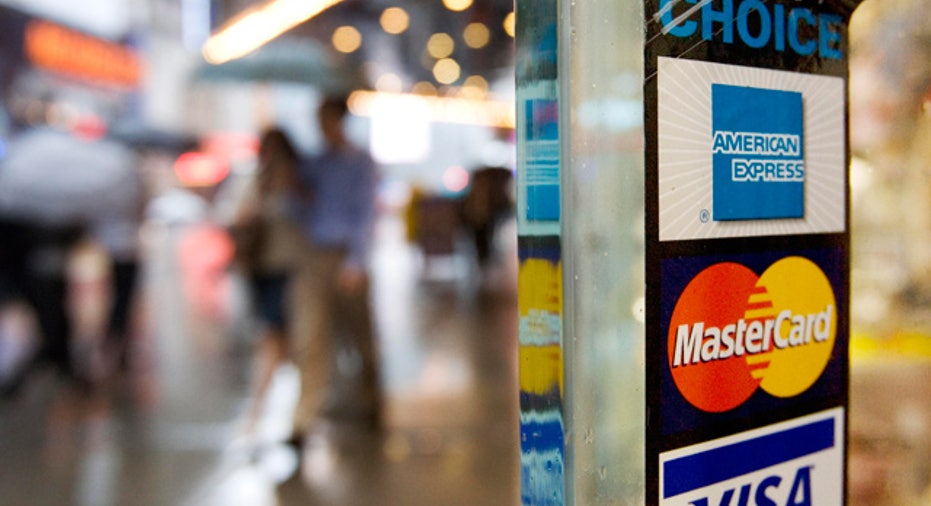What Your Personality Says About Your Financial Decisions

Tis just days before Christmas,
Your gift list is long;
The department store beckons
With lights, wreaths & song.
The atmosphere’s festive
As you step through the door;
A cheerful elf beckons-
She’s hard to ignore.
She waves a toy bunny
All decked out in red;
Unless you prefer
A T-shirt, instead.
Plus 10% off
Everything that you buy
With your new credit card;
Just step up and apply!
The discount would help-
Because money is tight;
The T-shirt is perfect
In green, red and white.
You swore that this year
You’d pay only in cash,
Stick to a budget,
Buy nothing rash.
Still, it’s tempting to think
Of the money you’d save;
”Right away! Automatic!”
She says. And you wave.
You know fees and rates
On a store credit card
Are often much higher;
Do you drop your guard?
Or, pass by the elf
With a look of disdain,
Even though being offered
A fresh candy cane?
I’d try to predict
If I just knew you better;
Are you shy? Reserved?
Or a real go-getter?
The life of the party?
A thinker who’s quiet?
A little withdrawn,
Or more of a riot?
Those who choose instant payback
And forego future gains,
Have the tendency built
Right into their brains!
When it comes to making financial decisions, particularly ones involving signing up for a credit card, your personality is a driving factor.
“Extroverts brains are wired differently,” says Jacob Hirsh, lead researcher on a just-completed study at Northwestern University’s Kellogg School of Management. “They’re more sensitive to potential rewards.”
Turns out, when your brain is confronted with a choice of “reward now” or “reward later,” two systems kick in. One involves your thinking, analytical brain, which weighs the pros and cons of accepting the offer on the table versus delaying and potentially receiving something of greater value. Psychologists like Hirsh refer to this as the “cool” process. The other system, referred to as the “hot” process, involves a much more primitive part of your brain. In response to the opportunity to receive instant gratification, it releases dopamine.
Dopamine is the ultimate feel-good chemical, and, for some reason, compared to individuals with more subdued personalities, fun-loving, outgoing extroverts get a bigger kick from the Neanderthal part of their brain. This dopamine “high” is so strong it often overwhelms the cool, rational side.
Thus, in the above example, when given a choice between the immediate rewards of a T-shirt or toy bunny plus a 10% discount, extroverts have a stronger tendency to sign up for another credit card they don’t need. They simply can’t hear their intellect shouting, “No, NO, NO! When you get the bill in January you are going to regret this and you’ll end up paying much more in fees and interest than you will save today!”
And, to make matters worse, an extrovert happens to be in a good mood is even more susceptible to the pull their dopamine-driven Neanderthal brain. They’re more impulsive, more willing to take chances and less willing to wait—the perfect storm for making dumb financial decisions.
Not to mention shot-gun weddings.
Unfairly, the release of dopamine “doesn’t really affect introverts,” according to Hirsh. “It doesn’t change their decision making much.” We all know individuals that possess what your grandmother would describe as tremendous “willpower.” They tend to be really smart, have higher than average IQs, and probably don’t stand out at a party- if they even get invited.
This doesn’t mean that there are no super-smart extroverts, says Hirsh. But extroverts need to consciously muster up their intellect to overcome the “hot” system that’s dumping dopamine into their brains when they’re offered instant gratification. “It’s important to recognize how your personality influences your decision-making and not make any important decisions when you’re in an emotional state. It’s so easy to get caught up in the moment and focus only on the present and not the future.”
In other words, if you know you’re an extrovert, take an introvert along when you go to the bank to cash your year-end bonus check. That way it’s more likely to end up in your savings account than being blown on some electronic toy that catches your eye. Shop for a new car with an introvert so you don’t end up spending more than you budgeted on a cute convertible that’s totally impractical for the winters you experience in Madison, Wisc.
If you happen to be an extrovert, you need to know that, aside from being lovable and fun, there are other positives associated with our personalities. “Extroverts are really good at mobilizing social capital,” according to Hirsh. Translation: Great leaders (think JFK) tend to be extroverts; their enthusiasm and ability to persuade inspire others to follow them.
In the corporate world, a good balance would be a CEO who’s an extrovert and a COO who is an introvert. The same goes for partners in a marriage.
In the end, just be aware that:
- Your personality and emotional state affect your ability to make decisions. This is especially true if you happen to be an “extrovert,” a personality prone to prefer immediate reward.
- Your emotional state can be manipulated (by advertising, visual stimuli, instant rewards, etc.) to further affect your ability to make decisions.
- When tempted to buy something you didn’t intend to, take a deep breath, put it on “hold” and take a walk. Chances are you’ll decide you really can’t afford or don’t need it.
Ms. Buckner is a Retirement and Financial Planning Specialist at Franklin Templeton Investments. The views expressed in this article are only those of Ms. Buckner or the individual commentator identified therein, and are not necessarily the views of Franklin Templeton Investments, which has not reviewed, and is not responsible for, the content.
If you have a question for Gail Buckner and the Your $ Matters column, send them to: yourmoneymatters@gmail.com, along with your name and phone number.



















